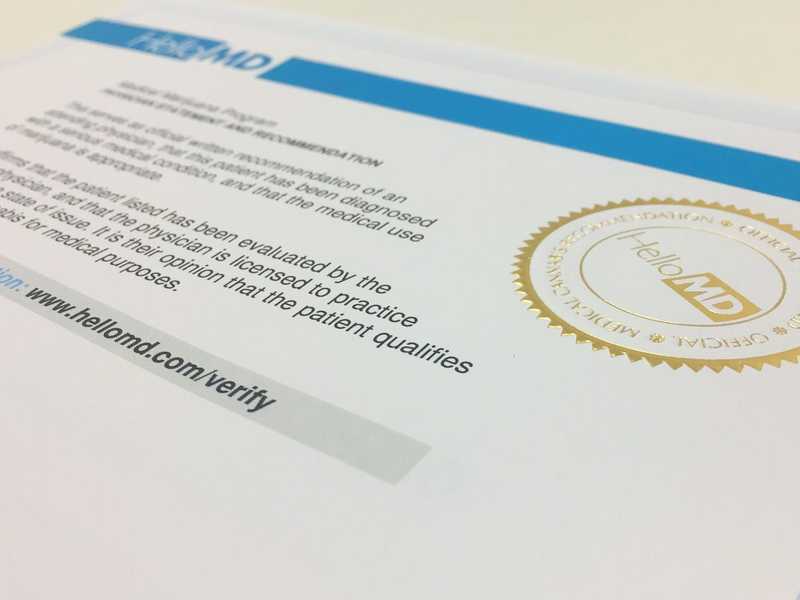In November 2016, voters in California agreed to make cannabis consumption legal for adults over the age of 21. With Proposition 64 people will no longer be convicted of possessing or gifting (not selling) up to an ounce of marijuana or seven grams of hash. It also gives residents the ability to smoke in the privacy of their homes and grow up to six cannabis plants indoors. Legal recreational marijuana sales in the state are supposed to begin January 1, 2018, prompting many people to wonder if they will need a medical recommendation after this date—the short answer is yes.
FOLLOW US ON FACEBOOK & INSTAGRAM
Understanding the Difference Between Medical and Adult Use Marijuana
In states with medical marijuana programs, a medical recommendation must be issued by a licensed physician before you can legally buy cannabis. California voters passed Prop 215 in 1996, allowing patients with eligible conditions to be approved for medical cannabis. The ailments that qualify include arthritis, cancer, chronic pain, fibromyalgia, anxiety, glaucoma, multiple sclerosis, migraines and “any other chronic or persistent medical symptom that substantially limits the ability of the person to conduct one or more major life activities.”
In states where adult use or recreational cannabis is legal, anyone over the age of 21 with a valid I.D. can purchase marijuana from a licensed dispensary. As long as there are clear rules, regulations and legislation in place, there is no need for a recommendation from a doctor or to carry a medical marijuana card that designates you as a legal consumer.
Recreational Cannabis in California
With the passing of Prop 64, California joined Colorado, Alaska, Oregon, Nevada and Washington as states where cannabis is recreationally legal. But unlike these other states, California still has a long way to go—it could take months or even years before Californians can casually walk into a dispensary and purchase cannabis.
Dispensaries must acquire licenses from both the state and their city to sell recreational cannabis—but most cities have yet to set up a regulatory framework that decides who gets these permits and who doesn’t. This is compounded by the fact that the state itself has yet to issue its final regulations. A few cities and counties such as Emeryville and Santa Cruz are rushing to set up a licensing infrastructure, but stores in those cities may still not be ready to open up shop by the start of the new year.
Moreover, many dispensaries will only be getting medical licensing, so these dispensaries will always require a recommendation to purchase. Additionally, many counties will only be issuing medical licenses and zero recreational licenses, so residents of those counties will still need a medical card.
Cities and counties that will allow recreational sales must hunker down and make explicit permitting guidelines—until then most Californians will still need to rely on the medical marijuana model to legally purchase cannabis.
RELATED: Marijuana is Legal in California: What Happens Next?
How to Get a Medical Recommendation
Until all the grey areas are cleared up and licenses are issued, California residents will still need a medical marijuana card to purchase cannabis in dispensaries. There are a number of ways to get one—such as visiting a marijuana evaluation center, where a licensed physician will ask about your medical history and need for cannabis before signing a recommendation. An easier way to get a recommendation is online—HelloMD offers convenient telehealth services seven days a week; California residents can get their recommendations after consulting with a doctor on live, streaming video. After the approval, you can immediately download an electronic version and you’ll be mailed a hardcopy version that can be used at any dispensary in the state.
If you are new to cannabis and want to learn more, take a look at our Cannabis 101 post. HelloMD can help you get your medical marijuana recommendation; it's 100% online, private and efficient.
